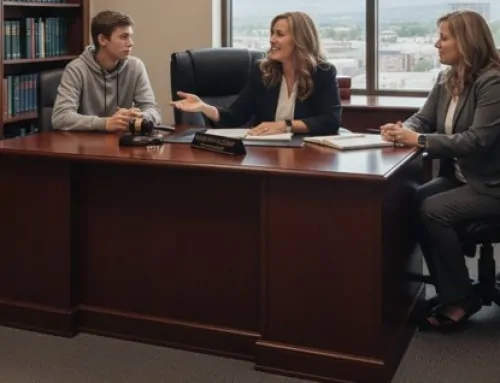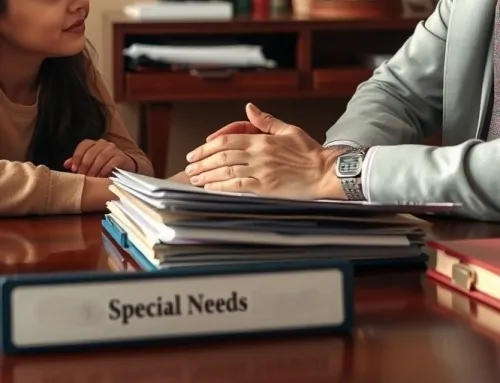Terminating Parental Rights in Utah: When and How It Happens
Imagine this: a young mother sits in our office, hands nervously folded, voice quiet. She’s been raising her little boy on her own for years. The child’s father disappeared not long after the baby was born—no calls, no birthday cards, no support. Now, she’s remarried. Her husband loves that boy like his own. “Can we make this official?” she asks, eyes hopeful. “Can he adopt my son?”
That question—whether someone can adopt a child—is one of the most common reasons we talk about terminating parental rights in Utah. But it’s also one of the most serious legal actions a court can take.
Terminating parental rights means more than ending contact or cutting ties—it means legally, permanently, and completely severing the relationship between a parent and their child. Once those rights are gone, there’s no getting them back.
Let’s walk through what that really means—and when, why, and how it happens in Utah.
What Is Termination of Parental Rights?
Termination of parental rights (TPR) is a legal process that ends the legal relationship between a parent and their child. That means no decision-making authority, no right to visitation or custody, and no say in the child’s life. In the eyes of the law, that person is no longer a parent.
Because of the seriousness of this process, it’s often referred to as the “civil death penalty” of family law. The state doesn’t take it lightly—and neither should you.
Whether you’re seeking termination or trying to defend your rights, it’s important to understand that this is a permanent decision. You’ll need strong legal guidance and a clear understanding of what’s required.
If you’re in that place, talking to a child custody attorney in Utah early can make a huge difference.
When Can Parental Rights Be Terminated?
In Utah, there are two main categories of TPR: voluntary and involuntary.
1. Voluntary Termination
Voluntary termination most often comes up in adoption cases—especially stepparent adoptions. One biological parent gives up their rights, and a stepparent or another guardian steps in to adopt the child legally.
It might sound simple, but even when a parent is willing to relinquish their rights, the court still has to approve it. Why? Because Utah judges are legally required to put the best interest of the child first—always.
A parent can’t just sign their rights away because they’re tired, overwhelmed, or don’t want to pay child support. That’s not how it works. There needs to be another person ready to adopt, and the court needs to be convinced that it’s a healthy, stable move for the child.
We see this a lot when a parent has been absent for years, and a stepfather or stepmother has stepped up as the day-to-day parent. If you’re in this situation, take a look at our guide on stepparent adoption in Utah to understand your next steps.
2. Involuntary Termination
Involuntary termination is a lot more complicated—and emotional. It typically happens when a parent is considered unfit, dangerous, or has simply abandoned the child.
Utah law provides specific legal grounds for involuntary termination. Some of the most common include:
- Abandonment – No contact or support for six months or more.
- Chronic neglect or abuse – Especially if DCFS has been involved.
- Substance abuse or mental illness – If it interferes with the ability to parent safely.
- Long-term incarceration – Particularly if the parent will be in prison throughout the child’s formative years.
- Failure to adjust – When a parent fails to meet court-ordered requirements to get a child back after removal.
For a complete list of grounds, you can check out Utah Code § 78A-6-507. The law is very clear about what must be proven—and it puts a high burden of proof on the person or agency requesting termination.
Sometimes, the Division of Child and Family Services (DCFS) files a petition after a child has been in foster care. Other times, it’s a grandparent, stepparent, or the other parent who’s asking the court to terminate rights.
Either way, the standard remains the same: Is this what’s best for the child?
What Does the Process Look Like?
Terminating parental rights is a legal process that takes place in Utah’s juvenile courts. Here’s a breakdown of how it typically unfolds:
1. Filing the Petition
The process starts when someone—usually a parent, stepparent, or DCFS—files a petition asking the court to terminate the other parent’s rights. This document outlines the legal reasons and evidence supporting the request.
2. Serving the Other Parent
The parent whose rights are at risk must be officially notified. They have a right to defend themselves and present their own evidence. If they can’t be found, the court will usually require alternative methods like publication.
3. Investigation and Evaluation
The court may appoint a Guardian ad Litem (GAL), who serves as an attorney for the child. There might also be psychological evaluations, parenting assessments, or DCFS reports presented to the court.
4. Court Hearing
Both sides present their case in a hearing. Evidence, testimony, and documentation are all reviewed. It’s not uncommon for these hearings to be emotional—after all, people’s relationships with their children are at stake.
5. Judgment
The judge reviews the evidence and decides whether to terminate the parent’s rights. If the judge believes the legal grounds are met and that termination is in the child’s best interest, rights are terminated permanently.
Common Myths About Terminating Parental Rights
Let’s clear up a few misconceptions:
- Myth: A parent can give up their rights to avoid paying child support.
False. Courts do not allow parents to abandon financial responsibility unless another adult is ready and able to adopt the child. - Myth: Termination means the child can never see that parent again.
Not necessarily. Legally, the relationship ends. But emotionally or informally, some families choose to maintain a connection. That’s a personal decision. - Myth: The child gets to decide.
Partially true. While older children (typically age 12 and up) may have input, the final decision is still up to the judge, based on the law and the child’s best interests.
So… Can My Spouse Adopt My Child?
Let’s return to the mother in our story.
If the biological parent’s rights are terminated—either by consent or court order—and the stepparent qualifies, then yes, your spouse can adopt your child. This process includes background checks, paperwork, and a final adoption hearing.
After the adoption is finalized, the child receives a new birth certificate listing the stepparent as their legal parent. That new parent takes on full legal responsibility, just like a biological parent would.
These are some of our favorite days in court. There are smiles. Happy tears. Sometimes even a celebration dinner afterward. And for the child—it’s a powerful message: you are wanted, you are safe, and this is your forever family.
Final Thoughts
Terminating parental rights is one of the most serious actions in family law. It’s emotional. It’s legal. And it’s permanent. Whether you’re trying to protect your child or fighting to maintain your relationship, you need an experienced guide by your side.
At Brown Family Law, we’ve helped hundreds of families navigate these decisions with care, clarity, and compassion. We know the law—but more importantly, we understand what it’s like to be in the middle of it.
Whether you’re exploring stepparent adoption, dealing with custody challenges, or facing an uncontested or contested divorce, we’re here to help.
Call us at 801-685-9999
Schedule a Divorce Consultation
Or just reach out and tell us your story. We’re listening.
Sources:
- Utah Code § 78A-6-507 – Grounds for Termination
- Utah State Courts – Guardian ad Litem Information
- U.S. Department of Health and Human Services – Termination of Parental Rights Summary











